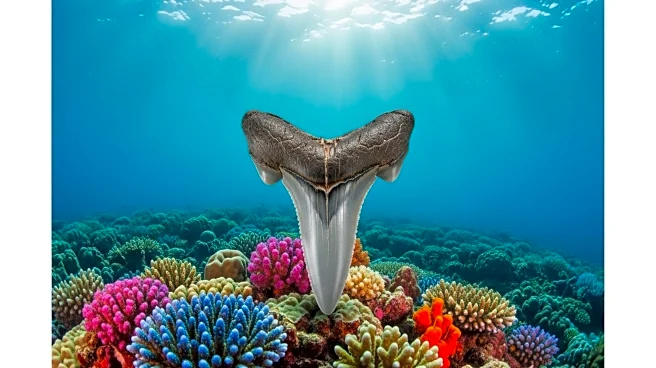What's Happening?
Recent research indicates that ocean acidification, driven by increased carbon dioxide emissions, could significantly impact sharks' teeth. The study, conducted by biologist Maximilian Baum and colleagues, involved incubating discarded shark teeth in artificial seawater with varying pH levels. Results showed that teeth exposed to more acidic conditions developed cracks and holes, compromising their structural integrity. This finding raises concerns about sharks' ability to maintain their predatory efficiency, as their teeth are crucial for catching prey.
Why It's Important?
The potential degradation of sharks' teeth due to ocean acidification has broader implications for marine ecosystems. Sharks play a critical role in maintaining the balance of marine food webs, and any disruption to their predatory capabilities could cascade through the ecosystem. This research highlights the far-reaching effects of climate change on biodiversity and underscores the need for urgent action to mitigate carbon emissions. The study also serves as a reminder of the interconnectedness of environmental changes and their impact on various species.
Beyond the Headlines
The study's findings suggest that ocean acidification could lead to increased energy costs for sharks, as weakened teeth may require more effort to catch prey. Additionally, the corrosion of dermal denticles, which enhance sharks' hydrodynamics, could further impact their movement efficiency. These changes could exacerbate the challenges sharks face from overfishing and habitat loss, highlighting the need for comprehensive conservation strategies.










